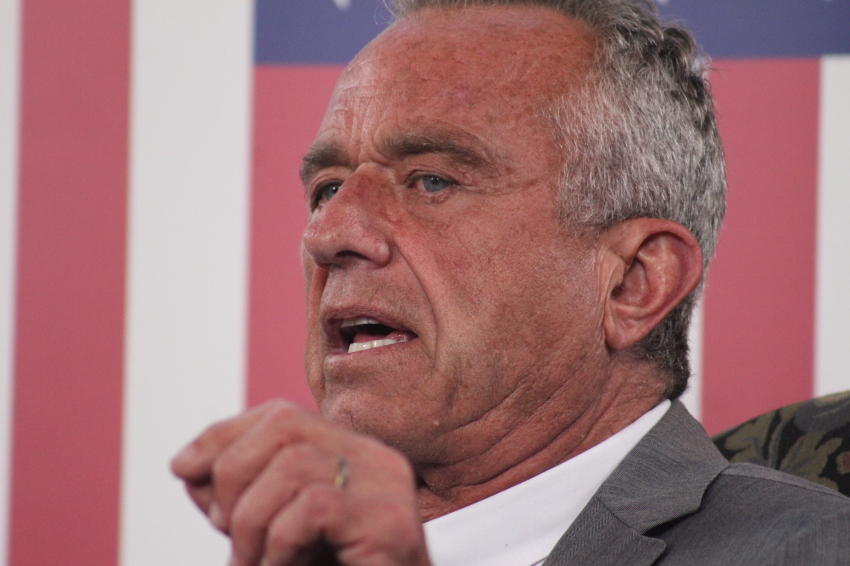Presidential candidate RFK Jr. says ‘I was never an atheist’ but pretended to believe in God

NEW YORK — Independent presidential candidate Robert F. Kennedy Jr. shot down a suggestion that he was ever an atheist at one point in his life but seemingly admitted he pretended to believe in God until he got to a place where he now considers himself a true believer.
Even at the end of a 90-minute interview with conservative commentator Eric Metaxas on his Manhattan-based conversation series "Socrates in the City" on Tuesday, the specifics of Kennedy's unorthodox conversion experience remain quite vague.
"I was never an atheist ever. I was raised in a deeply religious family, and I integrated that," he told Metaxas after the host suggested he was an atheist at one point.
Kennedy, 70, is an accomplished attorney and environmentalist whose father is former U.S. Attorney General and Sen. Robert F. Kennedy, and uncles are former President John F. Kennedy and Sen. Ted Kennedy. John F. Kennedy is known as the first U.S. president to adhere to the Roman Catholic faith.
Kennedy said that growing up as a Catholic, he went to church twice a day with his family, prayed the rosary at least once daily, prayed before and after meals, and read the lives of the saints and the Bible every night.
After his father was assassinated during his presidential campaign in 1968, Kennedy said he became a heroin addict the following year when he was just 15 years old.
"I was doing that for a lot of years. And when you're doing that, when you're living against conscience, which is what happens when you're an addict, you tend to push any kind of notion of God over the periphery of your horizons," he said.
He described having an "iron willpower" as a teenager who gave up candy for Lent and never touched it again until college but said his special willpower was no match for his addiction.
"To me, most of the demoralizing feature of addiction was my incapacity to keep contracts with myself. I would tell myself at 9 o'clock in the morning, I'm never going to do that again, and at 4 o'clock, I'd be doing it," he said.
He said he got sober in September of 1983 and came across research by Swiss psychiatrist Carl Jung in his book Synchronicity, in which he highlights that religious people beat their addictions faster and their recovery was "more durable."
Determined to do everything in his power to stay sober, Kennedy said he decided to start believing in God.
"I made a decision, an intellectual decision [that] I'm going to start believing in God," he said.
"Then I was presented with the dilemma that anybody who's in that position would say, which is 'how do you start believing in something that you can't see or smell or touch or taste or hear or acquire through senses?" he asked.
Jung, he said, "also solves that problem."
"He said, you fake it till you make it. And that was it. And he says the obedience will precede the evidence. In other words, if you start doing what you're supposed to do, then you will then see an evidence, a tangible, undeniable evidence of God's presence in life," Kennedy argued.
"And so I started doing that. I just said, 'Oh, that's what I'm going to do.' And I started pretending that, you know, ... that God was there watching the whole time, everything I did in life was a test."
When Metaxas asked if he was still pretending God exists, Kennedy said he wasn't. It appears he was convinced of God's existence by taking Jung's word for it.
"I don't pretend anymore because I," he said without completing the personal reference.
"Jung never had any doubt," he replied. "Jung saw God everywhere."
Contact: leonardo.blair@christianpost.com Follow Leonardo Blair on Twitter: @leoblair Follow Leonardo Blair on Facebook: LeoBlairChristianPost



























